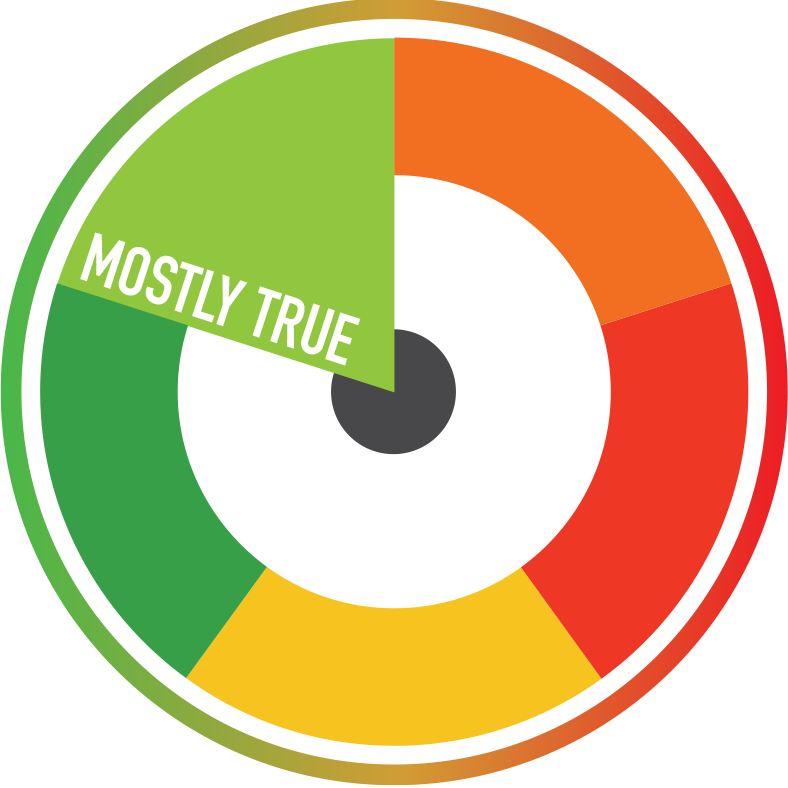In July 2021, housing prices in Europe had increased by 30.9% since 2010, according to data by Eurostat. A situation that has left many Europeans unable to buy their own property. In Belgium, Tine Heyse, a politician for the left-wing party Groen, stated that ‘if the current housing conditions in Ghent don’t change, 40% of all inhabitants will not be able to buy a house on the private market’. EUfactcheck looked into the evidence and methods on which Heyse’s estimation is based, which turned out to be reliable. However, as Heyse’s statement is an estimation, Eufactcheck rates it as mostly true.

In an interview on February 19th with the Belgian newspaper Het Laatste Nieuws, Tine Heyse from the left-wing party Groen debated the housing situation in Ghent with Matthias Diependaele, minister for the right-wing party N- VA at the Flemish Parliament. When EUfactcheck contacted Heyse, she explained that her claim is based on the current housing conditions in Ghent. These include a lack of social housing for rent and for sale, skyrocketing property prices on the private market, and a lack of investment in affordable housing for rent. Affordable housing for rent is a cooperation between the government and the private market where private players rent out their property below the market price, but with more security for the property owner. If the tenant doesn’t pay the government, the landlord will still receive his money. This solution is offered to people who don’t earn enough money to rent on the private market but earn too much to rent social housing.
Dynamic number
Heyse also provided EUfactcheck with a document in which she explains the current housing situation in Ghent. In this document, she refers to a policy note (in Dutch) published on the 2nd of March 2021, which explains that 11 percent of all inhabitants in Ghent rent social housing, whereas 39 percent rent on the regular private market. Of that 39 percent, 48.6 percent actually qualify for social housing. This is stated in a report (in Dutch) published by the multidisciplinary cooperation of experts named “Steunpunt Wonen” in 2019. When those last two numbers are multiplied, the result is 19 percent.
In conclusion: of the 40 percent referred to in the claim, 30 percentage points alludes to all inhabitants in Ghent who rent social housing or qualify for it, but aren’t able to because of the lack of social housing. “The remaining 10 percentage points of the 40 percent is an estimation and loosely based on the current property prices and income thresholds,” states Dieter Somers, member of the cabinet of Heyse. “If someone earns too much money to qualify for social housing, that doesn’t mean that he or she has enough money to rent on the private market or buy a house. Those people are included in the 10 percentage points,” Somers explains.
“The number presented in the claim is not an absolute number, but a dynamic one,” he continues. “This means that someone who currently rents social housing can get another job with a better income and will maybe be able to eventually buy a house. On the other hand, someone who currently owns a house but for example gets a divorce, might lose the house and end up in a financial situation where he or she will not be able to afford another property. It is a two-way street.”
Lack of social housing for sale
“When we speak about buying a house in our claim, we mean buying a house on the private market”, Somers states. “Someone who rents social housing pays an average of 330 euros per month. Way less than what he/she needs to pay if he/she would buy a house on the private market.”
According to the report of Steunpunt Wonen, someone who buys a house for the first time spends an average of 230.500 euros, borrows an average of 179.600 euros at the bank, and pays off an average monthly loan of 880 euros.
“For many tenants, buying a social house could offer a solution. But there are just not enough social houses on the market in Ghent,” Somers says. EUfactcheck gathered the number of social houses in Ghent that were built for sale. According to figures from the Flemish Company for Social Housing, in 2020 only 121 were offered for sale for a total of 79.084 inhabitants who are eligible to buy.
After gathering all the information, EUfactcheck presented this to Kristof Heylen, a research expert who concentrates on the affordability and quality of living and who is also a team member at Steunpunt Wonen. He replied that ‘the calculations and numbers provided by the cabinet, as well as the used method, are correct. He stated that ‘based on the given information, the claim is mostly true.’ Mostly, because it is a dynamic number and partially build on an estimation.
Conclusion
After verification EUfactcheck concludes that the quote given by Belgian left-wing politician Tine Heyse who stated that ‘if the current housing conditions in Ghent don’t change, 40% of all inhabitants will not be able to buy a house on the private market’ is correct. However, the number remains an estimation and therefore we assess the claim as mostly true.
RESEARCH | ARTICLE © Marlies Geyskens, International Journalism, Thomas More University of Mechelen, Belgium.
Leave your comments, thoughts, and suggestions in the box below. Take note: your response is moderated.





